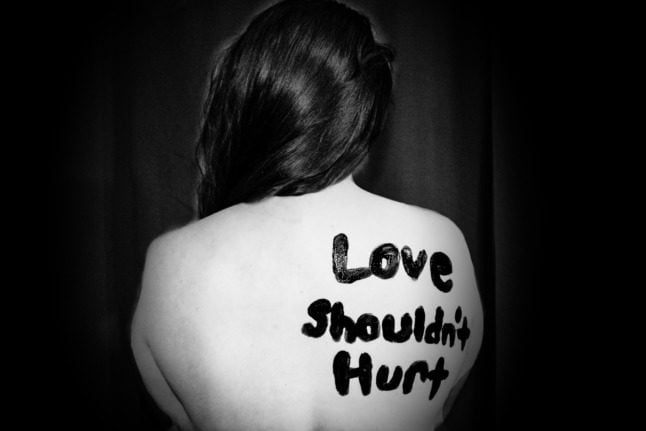The little girl spent eight hours hidden between the bullet-riddled corpses of her mother and grandmother on the backseat of the British-registered family car following a mysterious and brutal shooting on the outskirts of a village on the edges of Lake Annecy.
A second man, believed to be a local who inadvertently cycled into the scene of the attack, was also found shot dead in the tree-lined car park on Wednesday afternoon.
The girl's elder sister, who was found shot next to the car, was in a stable condition in hospital after being flown by helicopter to the nearby city of Grenoble
Eric Maillaud, the prosecutor in charge of the investigation, said the four-year-old had emerged from the car without any injury.
"She stayed, curled up under the bodies for eight hours and didn't move in all that time," he said.
The first police to arrive on the scene did not spot the girl and, with the car being left untouched and the area sealed off pending the arrival of forensic experts, she was left to endure a traumatic ordeal until she was finally discovered around midnight.
"It was only once we had access to the scene of the crime that we found her," Maillaud said. "The little girl spoke English. She heard noises, shouts but she can't tell us any more than that. She is only four years old.
"She is being looked after and we are doing everything we possibly can to care for her."
Lieutenant-Colonel Benoit Vinnemann, head of the Chambery gendarmerie, said the family had been staying at the nearby Saint Jorioz camp site, where fellow campers reported their disappearance on Wednesday evening.
The victims had still not been formally identified by 0730 GMT on Thursday. British consular officials were at the scene but the Foreign Office in London said it could not immediately confirm the identity of the victims or their nationality.
Chevaline and the surrounding area is popular with tourists and second homeowners from all over Europe, including many Britons.
French authorities said the victims were discovered by a passing cyclist aound 3:50 pm Wednesday. The father was in the driver's seat of the four-wheel drive BMW and the two women were in the backseat. The cyclist who was killed was found in front of the car.
The bodies were taken to Grenoble for autopsies.
Experts from the national gendarmerie's IRCGN unit collected DNA evidence from the scene and were checking spent bullet cartridges found at the scene in an attempt to identify the weapons used.


 Please whitelist us to continue reading.
Please whitelist us to continue reading.
Member comments